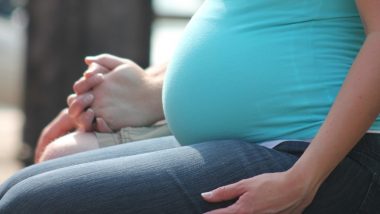Washington D.C. March 1: As the deadly COVID-19 spreads across the globe, there is not yet any concrete scientific literature in existence about the vulnerability of pregnant women to this virus, Fox News cited the American agency Centers for Disease Control and Prevention (CDC). "Pregnant women experience immunologic and physiologic changes which might make them more susceptible to viral respiratory infections, including COVID-19," stated CDC. Coronavirus Outbreak Effect: Mobile Phones, Medicine Supply Hit Due to COVID-19 Spread in China, India Looks For Alternatives.
Fox News further quoted CDC, which warned: "Pregnant women might also be at risk for severe illness, morbidity, or mortality compared to the general population as observed in cases of other related coronavirus infections [including severe acute respiratory syndrome coronavirus (SARS-CoV) and Middle East respiratory syndrome coronavirus (MERS-CoV)] and other viral respiratory infections, such as influenza during pregnancy." Specifically, in America, the risk for COVID-19 infection is low as of now, but pregnant women should still take general precautionary measures such as washing hands and avoiding exposure to sick individuals. The authority also advised isolating infected pregnant women from other people suffering from COVID-19.The symptoms of the disease include breathlessness, cough, and fever, with the latter being dangerous for women who are pregnant. In a First, Woman in Japan Infected With COVID-19 For Second Time.
According to the CDC, high fever during the first three months of pregnancy can increase the chances of certain birth defects in the newborns. Fox News informed that there have been a number of reported cases from China of possible COVID-19 infection passed on from pregnant mothers to infants, however, the validity of the same is still under dispute. The CDC states that this phenomenon is still not well-understood but according to a small series of cases, the pathogen wasn't detected in the breastmilk or amniotic fluid. There is also a lack of information regarding whether coronavirus infection leads to long-lasting or adverse effects in infants born to affected mothers. The authority further suggests that babies birthed by infected mothers should still be isolated.
(The above story is verified and authored by ANI staff, ANI is South Asia's leading multimedia news agency with over 100 bureaus in India, South Asia and across the globe. ANI brings the latest news on Politics and Current Affairs in India & around the World, Sports, Health, Fitness, Entertainment, & News. The views appearing in the above post do not reflect the opinions of LatestLY)













 Quickly
Quickly


